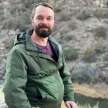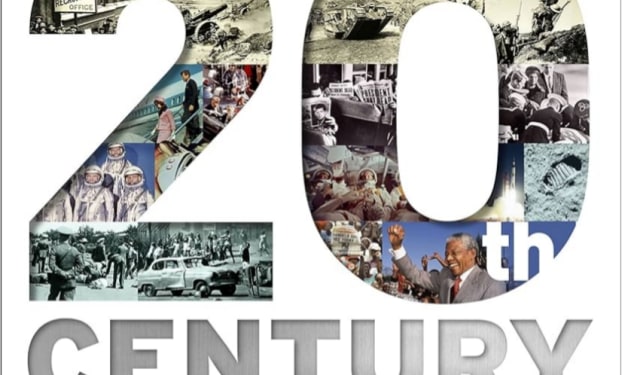Wilderness Maxims for Learning: Part 1
Maxim 1: To go fast, travel alone. To go far, travel together.

I have nearly unpacked after moving from Southern California to New Mexico, and just in time for summer. For students and educators, summer is a mythical time of year to pause, adjust, and hopefully have some time outside in the fresh air. Some will travel. Some will study. Others will while away the hours. Whatever your plans, the outdoors is sure to be on your mind or on your itinerary.
In honor of summer, let’s explore 10 maxims, or guiding principles, of the wilderness, emphasizing how these apply to learning and how to take action to integrate these maxims into your life. Whether you are a learner, a parent/caretaker of a student, an educator, or a school administrator, these may help to reinvigorate your perspective for the learning seasons ahead.
Robert Pirsig wrote extensively about the connections between the wilderness and learning, saying “There are as many routes (up a mountain) as there are individual souls.” What a wonderfully student-centered approach to learning and doing! When Pirsig writes about hiking, it becomes obvious that he is symbolically exploring the qualities of life and education. “It’s the sides of the mountain that sustain life, not the top. Here’s where things grow.” If a classroom is parallel to the wilderness, how often do students and educators appreciate what is growing along the slopes or stop and take in the wider view?
Wilderness wisdom—compiled by generations of amblers, walkers, hikers, trekkers, climbers, and navigators—is as vast as the Earth’s landscapes, while Indigenous knowledge of the land is even more extensive. Both learning and the wilderness present us with a sense of risk and reward just beyond the unknown. They challenge our intentions, our sense of presence, and our character.
This Summer Series invites you to reimagine learning, teaching, or supporting the learning process through a selection of 10 wilderness maxims, released once per week over the summer months. If these ideas help you to joyfully navigate a book, experience a class, or even explore a landscape, please share them.

Maxim 1: –To go fast, travel alone. To go far, travel together.
A seldom-acknowledged fact: traditional schooling—primary, secondary, or higher academia—is somewhat unnecessary. Anyone who can read (which can be learned from watching Sesame Street) can visit a library or purchase a collection of books. Thematic or academic book lists are available in abundance online for many to consider. However, one certainly loses specific value in isolated learning, as a shared perspective is bound to be more complete, engaging, and enjoyable. Just as birds tilt and pivot their gaze to better see objects, learners must also look at things from multiple perspectives in order to understand them more clearly.
It could be that deeper, more durable learning comes only through collaboration. Professional mountaineers tackle peaks with the help of a team, yet students are often prepped to perform on their own. The image of a single student hovering over a book likely comes to mind when we think of ‘studying,’ yet most jobs for the future require team skills where individuals work together or communicate collaboratively with wider networks. Learning is an extremely difficult pursuit, like climbing mountains, yet we seem to treat it as if anyone should be able to do it all on their own.
Connection to Learning:
Let’s stop leaving students to speed up or fall behind individually, and instead connect them more often with a sense of togetherness. Since a learner will speak about an idea differently from an expert instructor, it’s important to consider the benefits of study groups within classes and school networks. If that seems too complicated, I found myself often reminding and encouraging students to utilize YouTube to help them understand concepts. Even though many of us spend plenty of time online, a lot of students forget that there are entire communities out there sharing helpful tips and walk-throughs on a wide range of academic topics. For example, CrashCourse and Khan Academy are two of my favorite digital communities, and there is a seemingly endless supply of academic content creators waiting to help you understand something.
Finally, I cannot emphasize the benefits of reading aloud to yourself or even reading aloud with a family member, friend, or anyone who may give you a listen. Seriously. That’s why so many of us love listening to audiobooks. Even when we cannot find a community to connect with in support of our learning, we can connect with ourselves and at the same time feel more connected with the author and with the language itself. I used to read the dictionary for fun since I grew up in a world before the wide use of the internet, so I know for certain that language and words are entertaining, in and of themselves.

Discussion/Journaling Prompt:
Imagine you are on your “ideal team” (academic or otherwise). You can either “free write” about anything that comes to mind when you think of this ideal team, or you can consider the following guided questions to explore this more closely:
- What is your team creating, organizing, or working through?
- How many steps are involved in preparing for, executing, and reaching this goal?
- What is your role in relation to the other team members?
- What makes working with this team easier, and what aspects of the work become more difficult?
- In what ways will you have to grow or stretch your capabilities in order to help your team?
- What are the outcomes after the goal has been achieved, and what comes next?
- What character traits are most/least helpful within your team?
More is to come in Part 2 of this Summer Series on Wilderness Maxims for Learning. Like, share, subscribe, or comment if these ideas resonate with you.
About the Creator
Philip Canterbury
Storyteller and published historian crafting fiction and nonfiction.
2022 Vocal+ Fiction Awards Finalist [Chaos Along the Arroyo].
Top Story - October 2023 [All the Colorful Wildflowers].






Comments
There are no comments for this story
Be the first to respond and start the conversation.